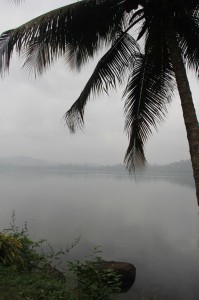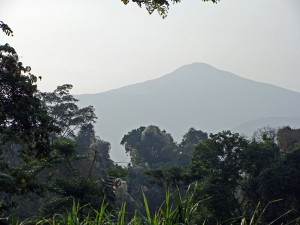Welcome to the official website of
Green Cameroon, a non-governmental organisation (NGO), founded in 2003.
Serving Our Communities with Passion!
Green Cameroon is a non-profit organization dedicated to conserving Cameroon’s rich biodiversity and promoting sustainable development. Our vision is a Cameroon where people and nature thrive in harmony.
Green Cameroon is committed to safeguarding Cameroon’s environment and empowering communities to thrive sustainably.
Our mission is to protect Cameroon’s natural heritage and build a prosperous future for all through sustainable development.
Environmental Protection in Cameroon
 Green Cameroon is a grassroots organization based in Buea that was founded in 2003 by a group of passionate conservationists determined to address the growing environmental challenges facing the nation.
Green Cameroon is a grassroots organization based in Buea that was founded in 2003 by a group of passionate conservationists determined to address the growing environmental challenges facing the nation.
Since its creation, Green Cameroon has worked with communities and schools all over Cameroon to foster and promote conservation practices, implementing practical projects and advocating for better environmental policies at national and international levels.
Working in all ten regions of the country, Green Cameroon is dedicated to reversing environmental degradation through practical solutions. We address issues like deforestation, improper waste disposal, and water scarcity, while working to improve community livelihoods and preserve resources for the future.
Nature Conservation and Education
We work on promoting the exchange of good practices including indigenous practices used to address drought, desertification, floods and erosion. we are also interested in promoting initiatives for sustainable use and management of forest and other land resources with the involvement of local communities.
Our main work areas
- Environmental Education and Sensitization
- Natural resource management and Conservation
- Community Development and Environmental Rehabilitation
- Water and sanitation
- Advocacy and policy work at both national and international levels
- Consultancy/Research
Our activities
- Providing environmental education on global and regional issues affecting Africa as well as environmental protection
- Increasing the ability of local populations to benefit and contribute to natural resource management and conservation
- Promoting new and traditional approaches to increasing food production without losing on-farm biodiversity
- Focusing on activities that conserve and protect the local environment and helping to alleviate poverty for communities
- Organising water and sanitation education at schools and health centres
Have a look at our current Projects!
Forest Management around Mount Cameroon
 The office of Green Cameroon is located in Buea Town, on the slopes of Mount Cameroon. Buea is the capital of the Southwest Region of Cameroon. The city is located on the eastern slopes of Mount Cameroon and has a population of around 100,000 citizens.
The office of Green Cameroon is located in Buea Town, on the slopes of Mount Cameroon. Buea is the capital of the Southwest Region of Cameroon. The city is located on the eastern slopes of Mount Cameroon and has a population of around 100,000 citizens.
Mount Cameroon is one of Africa’s largest volcanoes, rising to 4,090 metres (13,255 ft) above the coast of west Cameroon. It rises from the coast through tropical rainforest to a bare summit which is cold, windy, and occasionally brushed with snow. Mount Cameroon is also known as Cameroon Mountain or Fako (the name of the higher of its two peaks) or by its native name Mongo ma Ndemi (“Mountain of Greatness”).
Habitat loss and hunting of native fauna and flora are the principal threats to the Mount Cameroon ecoregion. Habitat loss is caused by the unsustainable exploitation of firewood, overgrazing, fire damage, agricultural encroachment and collection of medicinal bark (Prunus africana). On the eastern side of Mount Cameroon it has been estimated that up to half of the forest cover has already been lost (Stattersfield et al. 1998).
With the constant increase in population observed in this area, there is a steady loss of forest cover caused by the population’s huge demand for wood and other logging activities. We, from Green Cameroon, think that loss of forest cover goes along with loss of biodiversity which in the long run can lead to severe land degradation problems.



Recent comments